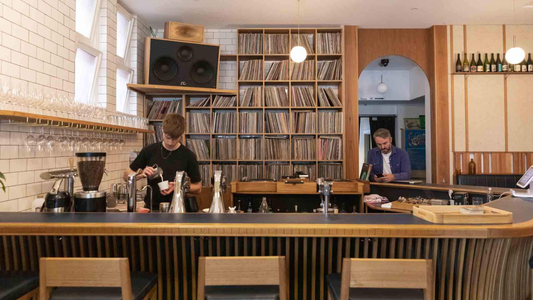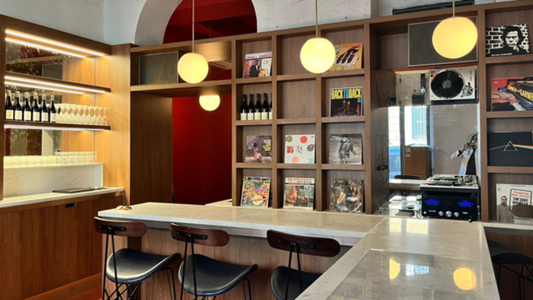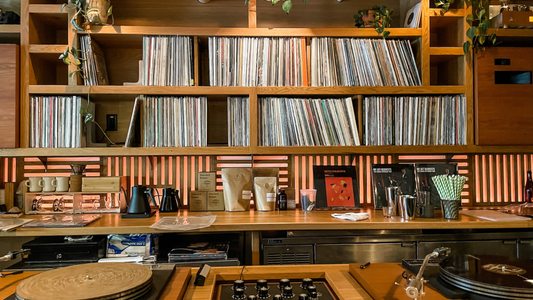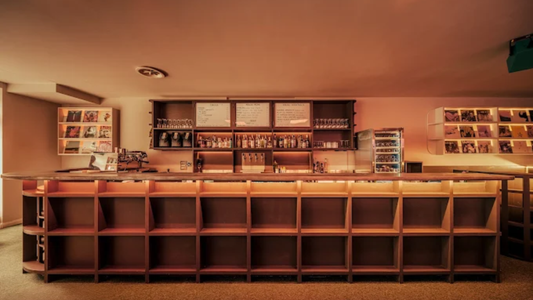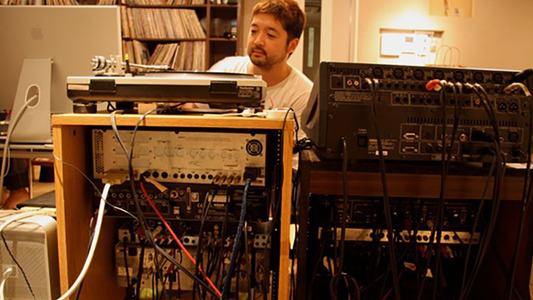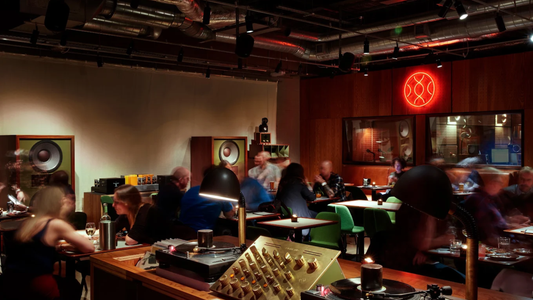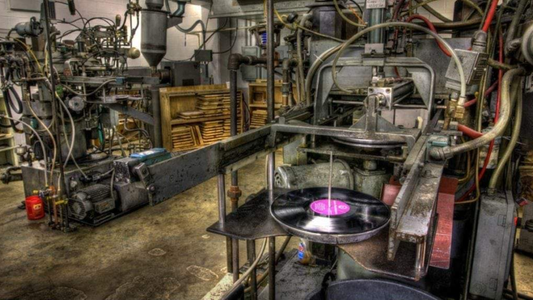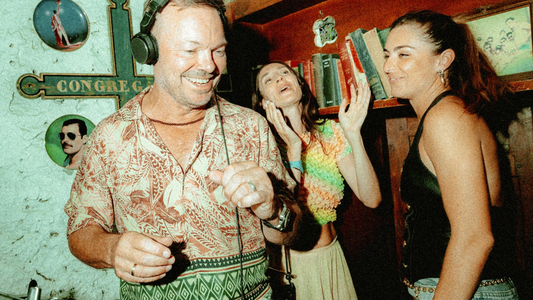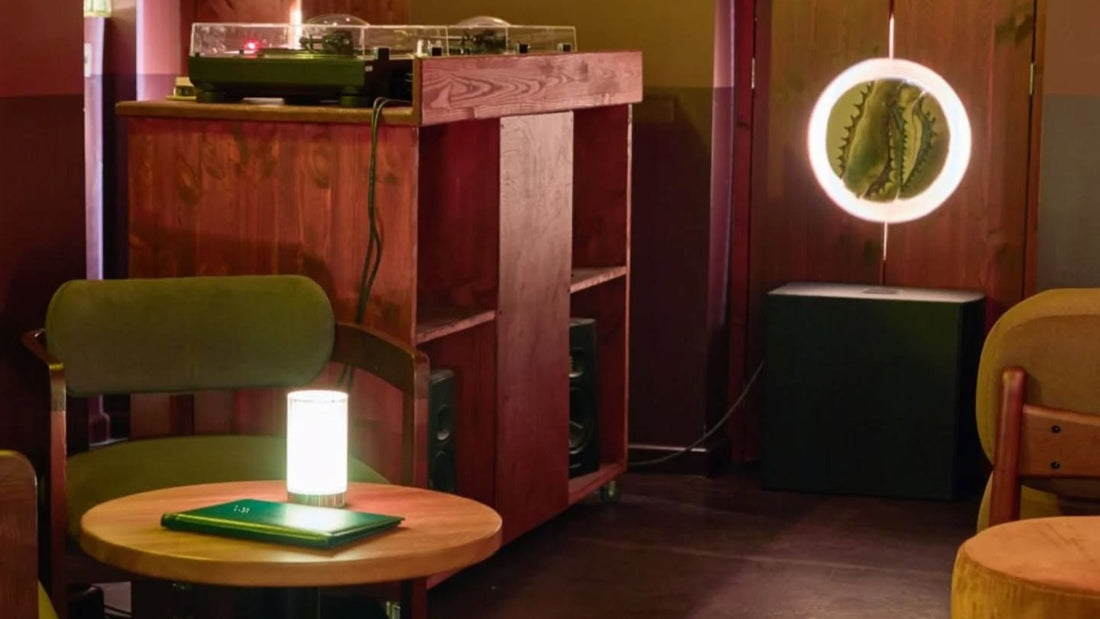
Ember and Echo: Little Fires’ Mezcal and Vinyl Refuge in Bethnal Green
By Rafi Mercer
New Listing
Venue Name: Little Fires
Address: 233 Hackney Road, Bethnal Green, London E2 8NA, United Kingdom
Website: https://littlefires.bar/
Phone: tel:+442038078826
If London has a tendency to shout its pleasures, Little Fires whispers them instead. It’s an address you could walk past half a dozen times and never clock—no big signage, no glaring lights—just the faint sense that something is happening under your feet. And that’s exactly where it is: a basement, carved out and reimagined as a mezcal and vinyl haven for those who prefer their evenings slow-burning.

The descent is brief but deliberate. A narrow stairwell drops you into a room where amber light hangs low, throwing warm shadows across wooden tables and softly textured walls. The ceiling is low enough that sound doesn’t have to travel far—it arrives direct, detailed, and somehow personal, as though the record was meant for you alone.
A short bar stretches along one wall, bottles of mezcal in every conceivable shade from pale straw to deep caramel. Behind the bar, the vinyl shelves glow softly, each spine a little marker of potential mood. You notice quickly that the bottles and the records occupy equal status here: the drinks and the music are both protagonists, each influencing the other in subtle, unspoken ways.
The sound system is immaculate without being ostentatious. This isn’t a tech showroom—it’s a space where the equipment melts into the atmosphere. The turntable sits on a solid plinth, flanked by amplification chosen as much for warmth as for power. Speakers are placed to ensure no corner is an afterthought; the bass is full but never invasive, the highs soft yet articulate. There’s no sense of strain, even when the record swells.
Early in the evening, the room moves at the pace of a well-crafted drink. You might hear an ECM pressing—an ethereal piano, a patient bassline—paired with something clean and crisp in your glass. Mezcal, if you’ve only met it through smoky, aggressive examples, is here revealed in its subtler guises: floral, mineral, layered with herbs. The staff know their agave spirits like crate-diggers know catalogue numbers. Ask about the record, and they’ll tell you the pressing year and the label; ask about the mezcal, and you’ll get the village, the producer, the soil type.
The name—Little Fires—makes more sense as the evening unfolds. There’s no big blaze here, no pyrotechnic DJ drops. Instead, the night is a series of small ignitions: a particular chord change, the way a trumpet note blooms in the room, the brief sting of chilli in a cocktail’s finish. These moments flare up, glow, and then settle into embers, leaving warmth behind.
On a recent visit, the programming was a slow arc from ambient electronics to deeper, groove-led jazz. The DJ—a term that feels almost too big for the quiet confidence at play—moved with minimal gestures, letting tracks breathe. A synthesiser shimmered over a dubby bassline; the rhythm was steady but unhurried. People talked, but in a way that bent around the music, letting it occupy the centre without resistance.
The mezcal flights are worth lingering over. Three small pours, each distinct, arriving with a card telling you where it comes from and what you might notice. The experience mirrors the listening: careful attention reveals layers you’d miss in a rush. A bright, almost citrusy pour might meet an airy Japanese jazz piano cut; a smoky, earthy spirit could share space with a deep, modal Coltrane side.
The room itself feels like a shelter from the speed of Hackney Road above. There’s an ease to being here—time behaves differently underground. You’re not conscious of the hour, only of the sequence of records and the way the mezcal softens edges. The lighting dips slightly as the night matures, colours deepen, and conversations tilt into confidences.
One detail worth noting: there’s no crowding of the booth. The DJ is part of the room, not elevated or hidden. Guests can approach, ask about a track, share a recommendation. It makes the act of curation feel less like a performance and more like hospitality. And it works—people leave with new music in their heads as well as new flavours on their palate.
It’s tempting to compare Little Fires to the Japanese listening bars it clearly nods to, but the comparison isn’t exact. This isn’t about hushed reverence—it’s about intimacy. It’s about bringing together two crafts—spirits and sound—and letting them play off each other in a space small enough to hold it all without dilution.
By the time you climb back up to the street, the outside world feels louder than you remember. The buses seem sharper, the footsteps faster. But somewhere inside, you’re still carrying a little ember from the room below—a warmth and a tone that will fade slowly, if at all.
Rafi Mercer writes about the spaces where music matters. For more stories from the Tracks & Tales, subscribe, or click here to read more.
